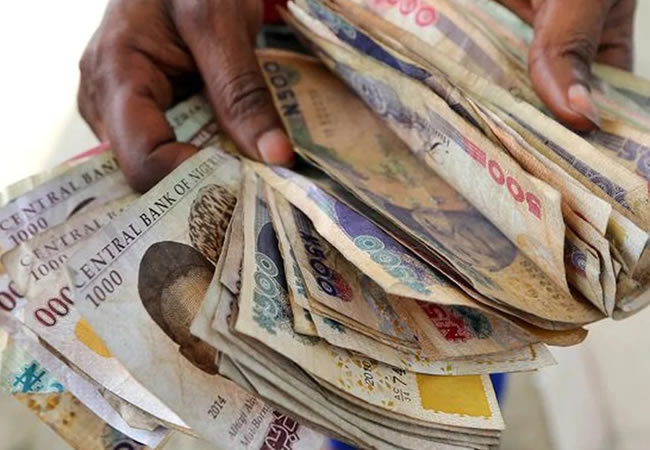The naira fell against the US dollar in the currency market on Tuesday, as FX liquidity was depleted by increased demand for imports and other associated obligations.
The naira has continued to fall as the country struggles to keep its head above water, despite a slew of macroeconomic challenges that have called President Bola Tinubu’s political acumen into question.
The FX reform has had an impact on all parts of Nigerian society as a result of the Central Bank of Nigeria’s willing buyer, willing seller position in pursuing exchange rate convergence in a country that relies heavily on imports.
Many businesses are on the verge of failure as a result of massive foreign exchange losses. While some corporations can renegotiate, others have been unable to free themselves from foreign currency liabilities.
While the central bank maintained its position that the local currency is drastically undervalued, a weak net FX balance has diminished the authority’s war chest for defending the local currency, leaving it in a fight to the finish against FX speculators.
According to the FMDQ website, the exchange rate fell nearly 1% in today’s trading session, closing at N1592.06 per US dollar on the Nigerian autonomous forex market (NAFEM).
The naira depreciated by 0.81% in the official market, closing at ₦1,592.06 per US dollar. Likewise, in the parallel market, the naira slipped by 0.32%, ending the day at ₦1,590 per dollar. At the current market trend, the gap between exchange rates at the official and informal currency markets has narrowed to N2 on each US dollar.
Last week, the NAFEM rate traded within the range of N1,495 – N1,607.5, closing at N1,579.9 per greenback in the spot market. This points towards a depreciation of -0.4% or N5.7 last week.
The Naira closed at an average of N1,602 on Friday in the parallel market. According to data from FMDQ, total NAFEM turnover increased by +5.8% or USD49.6 million to close at USD907.5 million on Friday. Coronation Research reported that the NAFEM window recorded an inflow of USD423.8 million.
Breakdown showed that foreign portfolio investors (FPIs) accounted for 30.6% of the inflow. The CBN boosted the US dollar volume with 20.1% contribution to the sum. Non-bank corporates accounted for 20.9%, exporters supply was 24.2%, and others category accounted for 4.2%.
In the global commodities market, Crude oil prices dropped following previous session’s decline due to concerns about demand in Asia and ceasefire discussions in the Middle East.
Brent prices decreased by 0.59% to $77.20, while WTI prices fell by 0.58% to $73.94. Meanwhile, gold prices rose by 0.07% to $2,543.20 per ounce.












